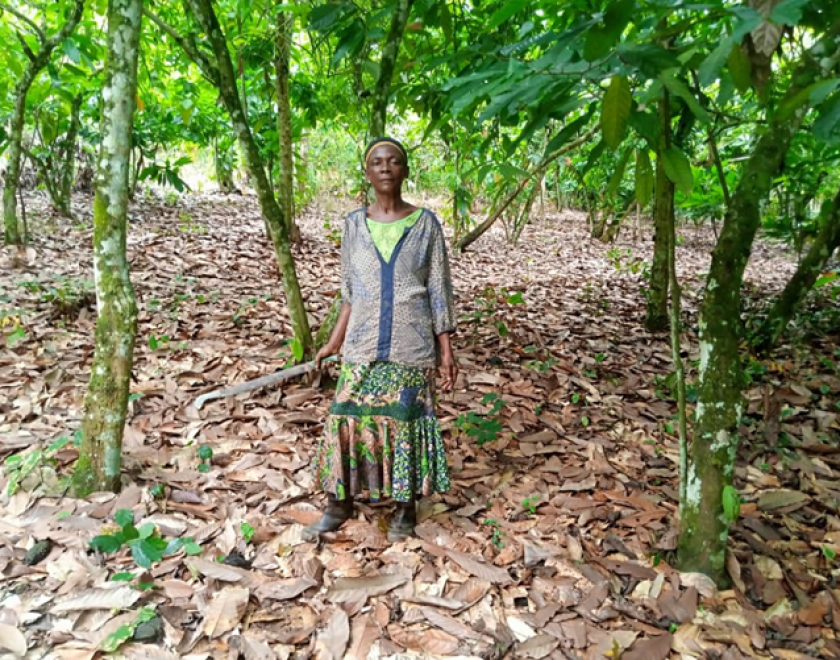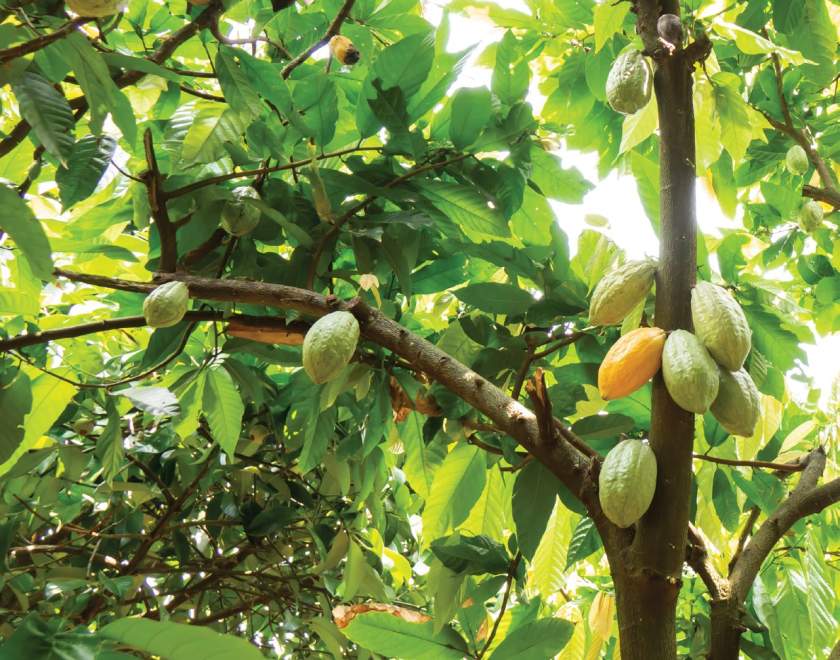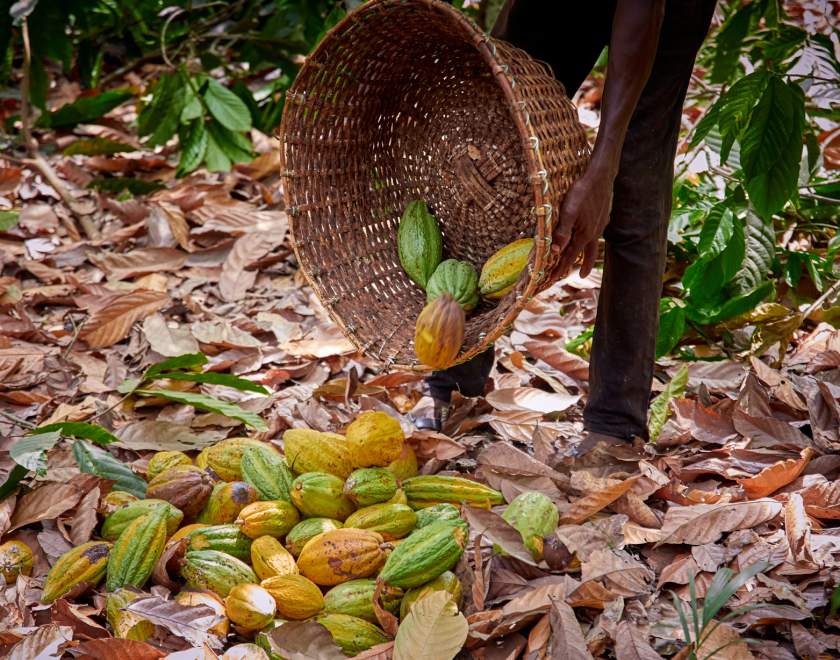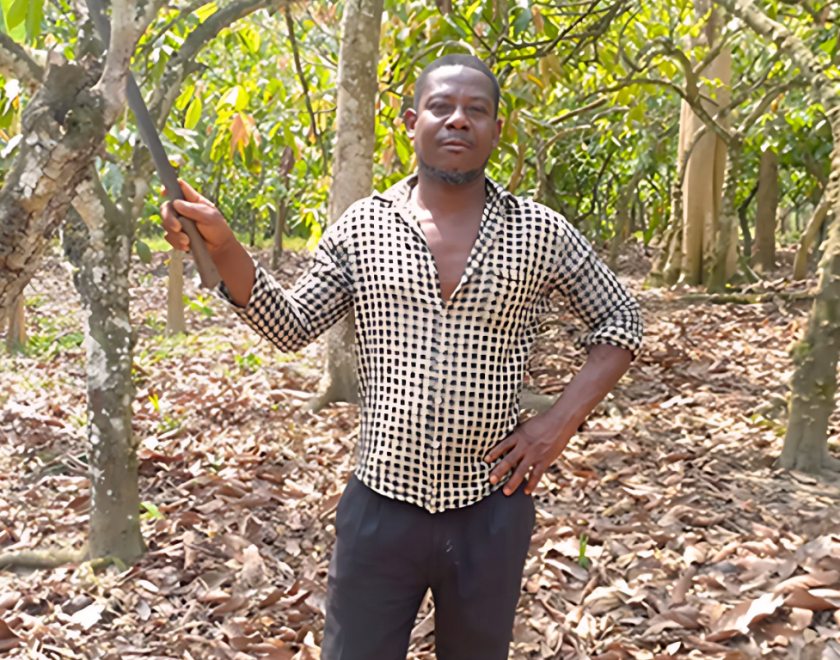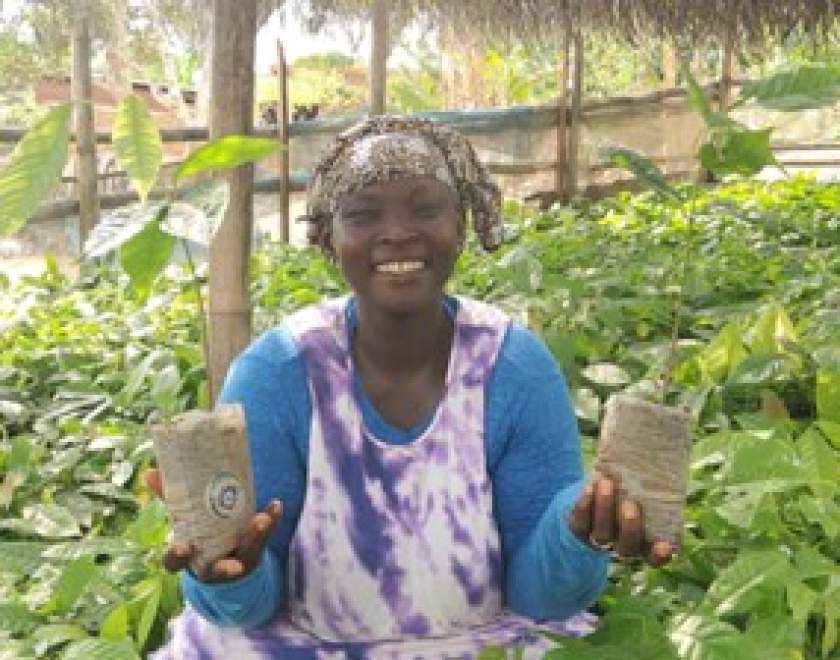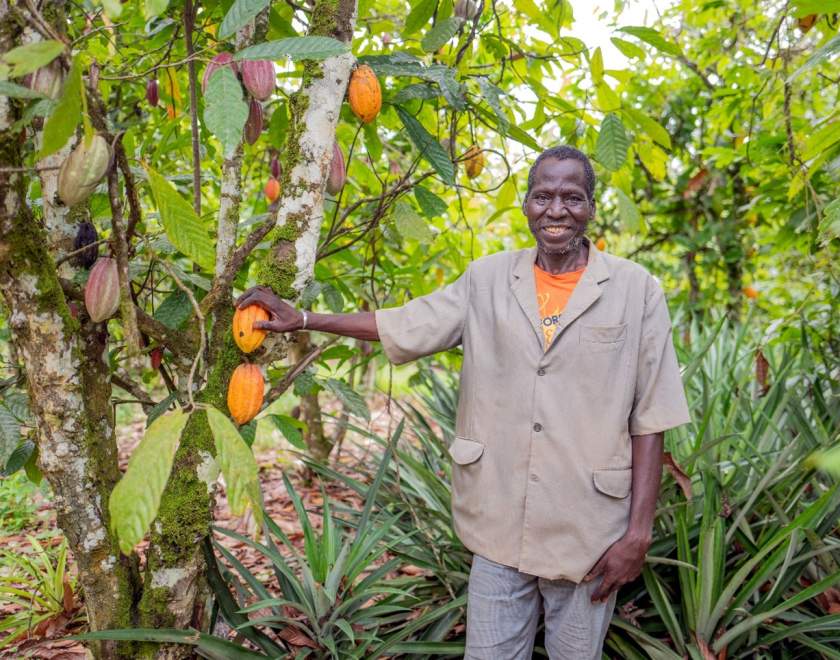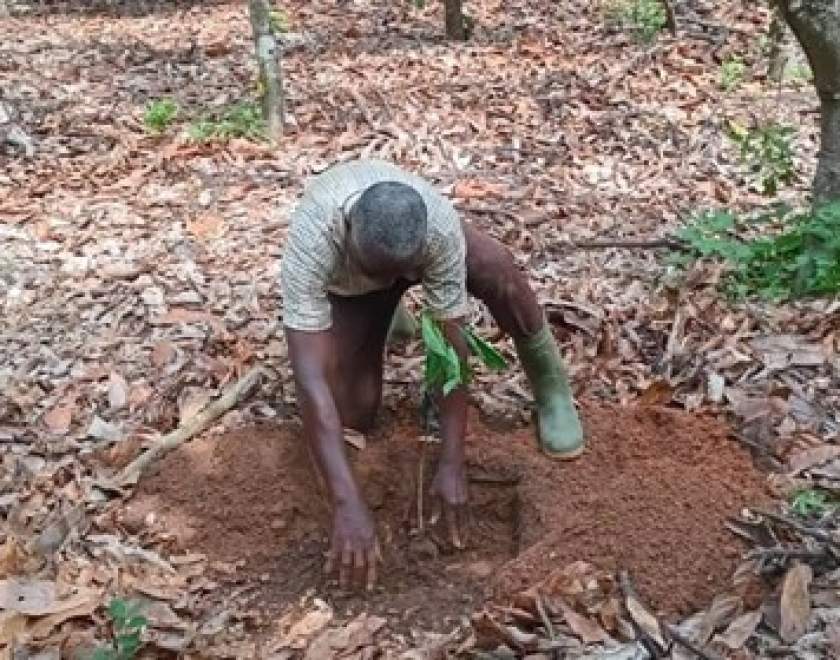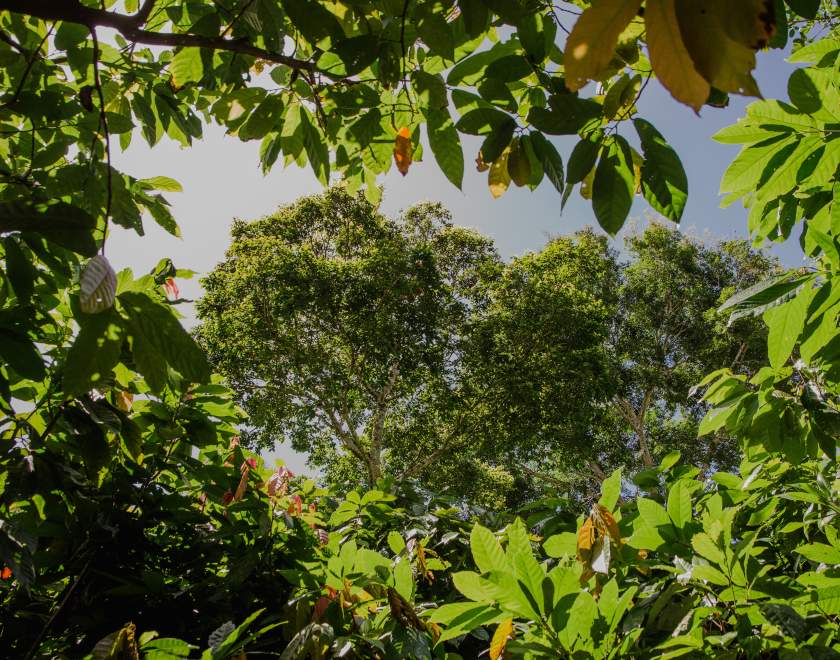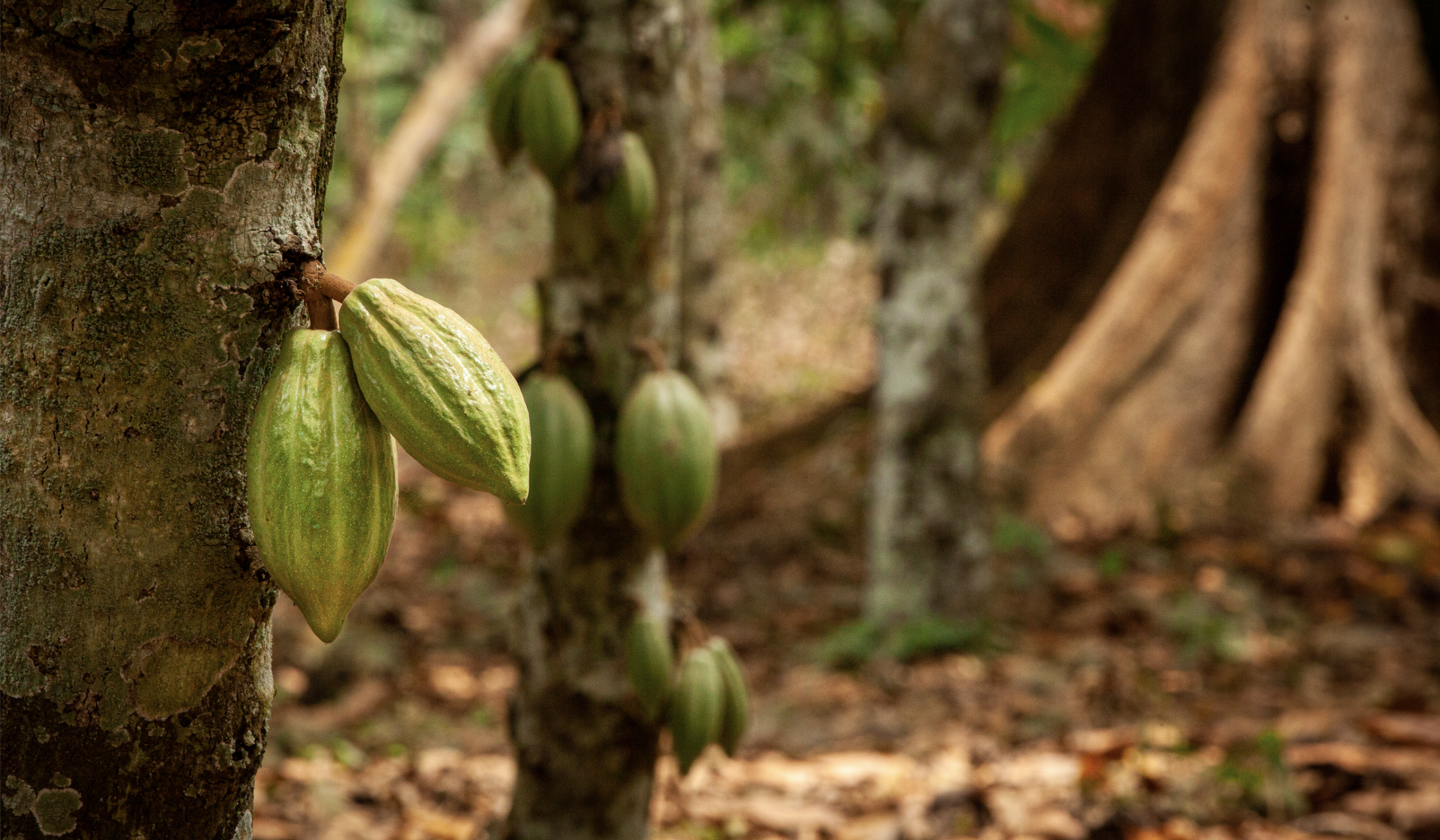
Here’s a look at what a few companies learned last year, what they’re proudest of achieving and where they’re focused as they look ahead.
The Cocoa & Forests Initiative (CFI) is the first and largest public-private partnership that involves the entire cocoa sector. With the aim of solving the systemic issues of deforestation and restoring degraded forests linked to cocoa production. And this year more than ever, it was clear through CFI that to drive real change in a complex environment, true collective action is needed.
Signatory companies for CFI – including many WCF members – took this lesson to heart. Across CFI’s three focus areas, companies worked with one another, government partners, community leaders and technical partners to create impact. In fact, signatory companies have invested $270 million from 2021 to 2023 in CFI-related projects in Ghana and Côte d’Ivoire to drive this collaboration.
Here’s a look at what a few companies learned last year, what they’re proudest of achieving and where they’re focused as they look ahead.
#1: Protection and restoration of forests
When it comes to safeguarding forests, companies demonstrated the value of having a “public-private” partnership as they aligned with government actions and community efforts.
In Côte d’Ivoire, Mondelēz International’s Cocoa Life programme has worked with local partners to initiate Payment for Ecosystem Services (PES) programmes aligned with national forest protection strategies. After finding success in the Nawa region, they expanded to the Tai National Park area, aiming to restore and protect forests. And in Ghana, the Cocoa Life programme is leading the Modified Taungya System (MTS), empowering farmers and local communities as co-managers of forest reserves.
Both programmes help provide additional incomes and incentives to farmers and others in the community to adopt agroforestry practices and help protect forests. The Cocoa Life programme continues to engage with sector stakeholders from farmers to government to review and shape the PES framework.
“We are still learning how to bring PES to full scale, but we are proud of getting out of our comfort zone, which is what you need to do with innovation,” said Nathalie Faulkner, who leads CFI activities within the Cocoa Life programme for Mondelēz International.
She called out that through CFI, practices that seemed revolutionary a few years ago have now become standard – and forests are benefiting.
“We have started to integrate a lot of our activities into our day-to-day business,” Faulkner said. “When we started CFI, mapping polygons was quite innovative. Now we do it as a matter of course. Agroforestry, too, has become an important practice to help make farms more resilient to climate change while enable farmers’ income diversification.”
As part of that innovative approach, Mondelēz International through the Cocoa Life programme has also taken these activities beyond West Africa to countries like the Dominican Republic and Indonesia, as well. It’s another way that CFI is impacting the global cocoa sector.
“We will continue to co-design systemic solutions, such as farm mapping, while working in sector-wide partnerships to help deliver more positive impact. If we want to conserve land and forests for today and tomorrow, we need to act now,” said Cedric van Cutsem, Senior Director Cocoa Life at Mondelēz International. “We aim to continue work on a sector-wide, integrated and holistic approach aiming to both protect the landscapes and lift the people. We strive to come together to clarify how we will reach the ambitious but necessary CFI 2.0 ambitions on a landscape-wide level.”
#2: Sustainable agricultural production and increased farmer incomes
Companies continue to experiment with innovative solutions to help farmers sustainably increase their production and incomes, starting to bring breakthrough ideas to scale.
In Côte d’Ivoire, Nestlé’s Income Accelerator Program is an innovative family-centred programme aiming to close the gap to a living income by encouraging changes in behaviour and rewarding positive practices. Families receive cash payments for these behaviours and practices.
“We’re making progress on yields, incomes, gender empowerment and education. And it’s very equitable, with up to 500 euros available per household regardless of how much cocoa they produce,” said Darrell High, Global Nestlé Cocoa Plan Manager.
In the past two years, the programme has been tested at scale with 10,000 families, and after 18 months, the programme saw a 38% increase in total household net income (vs. 29% in the comparison group) and 10% more households earning a living income (vs. 3% more in the comparison group).
According to the full KIT Institute report: “The Accelerator has significantly enhanced cocoa productivity, increased investments, and net income, mitigated diseases and pests on cocoa farms, promoted financial access, and positively influenced women empowerment and child schooling rates.”
Even with this significant progress on the Income Accelerator, High doesn’t take anything for granted. A key takeaway for him was that: “Every year is a challenge. Just because something worked well one year doesn’t mean it will the next year. You need to stay on top of everything.”
The reality he called out is that you have different stresses on forests, different stresses on productivity and different stresses on cocoa-farming households with each new crop season. It’s all part of operating in a highly complex environment like the cocoa sector.
#3: Strong community engagement and social inclusion
Companies are also making a wider impact in cocoa-growing communities, making those communities more resilient and improving lives in ways that will ultimately also enable forest protection.
For example, Export Trading Group (ETG) and its sustainability foundation Beyond Beans offer a Gender Action Learning Systems (GALS) workshop to participants in Village Savings & Loan Associations (VSLAs) in Côte d’Ivoire. Adapted from CARE International’s established methodology, these workshops train both men and women on gender equality as well as financial capacity-building.
When women have more involvement in leadership and decision-making at the household and community level, it has positive impacts on social, economic and environmental development. Last year, Beyond Beans added 25 new VSLAs to its network, bringing the total to 210 active VSLAs with 8,255 members in the country.
“These workshops are opening up difficult topics by facilitating conversation about gender inequality, household visions and women’s ability to make their own income,” said Remi van Balen, Senior Programme Manager of Agroforestry & Environment for Beyond Beans. “Many women who joined the workshops have started or expanded their entrepreneurial activities with the support of their fellow VSLA members.”
Whether it’s on gender empowerment through GALS workshops, supporting farmers towards a living income through initiatives such as the first large-scale cocoa juice factory in Côte d’Ivoire or helping restore landscapes that have been polluted by mining, van Balen said that strong partnerships are essential.
“Collaboration and consortium building is key to innovating and making change happen,” van Balen said.

